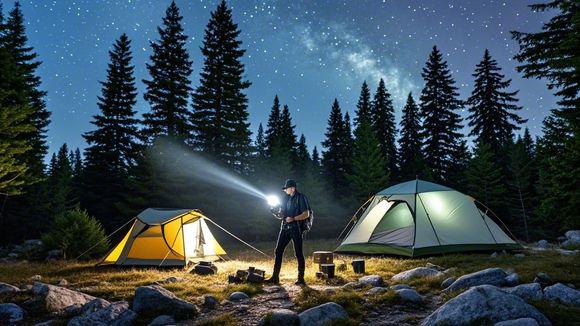Table of Contents
The ideal flashlight brightness depends on the task: 100-300 lumens for EDC, 500-1000 lumens for outdoor use, and 2000+ lumens for professional/emergency needs. Consider battery life, beam distance, and usage environment for optimal performance.

Quick Answer: The ideal flashlight brightness ranges from 100-2000+ lumens depending on use. Everyday carry needs 100-300 lumens, outdoor activities require 500-1000 lumens, and professional applications demand 2000+ lumens. Battery life typically decreases as brightness increases. Modern LED flashlights offer multiple brightness modes to balance performance and runtime.
Quick Reference Guide
| Use Case | Recommended Lumens | Battery worktime | Typical Range | Best For |
|---|---|---|---|---|
| Indoor/EDC | 100-300 | 4-150hours | 150-500m | Home, office, car |
| Outdoor Recreation | 500-1000 | 5-150 hours | 150-500m | Camping, hiking |
| Professional | 1000-2000 | 2-150 hours | 300-800m | Security, inspection |
| Emergency/Tactical | 2000+ | 2-150 hours | 300-1500m | Search & rescue |
Table of Contents

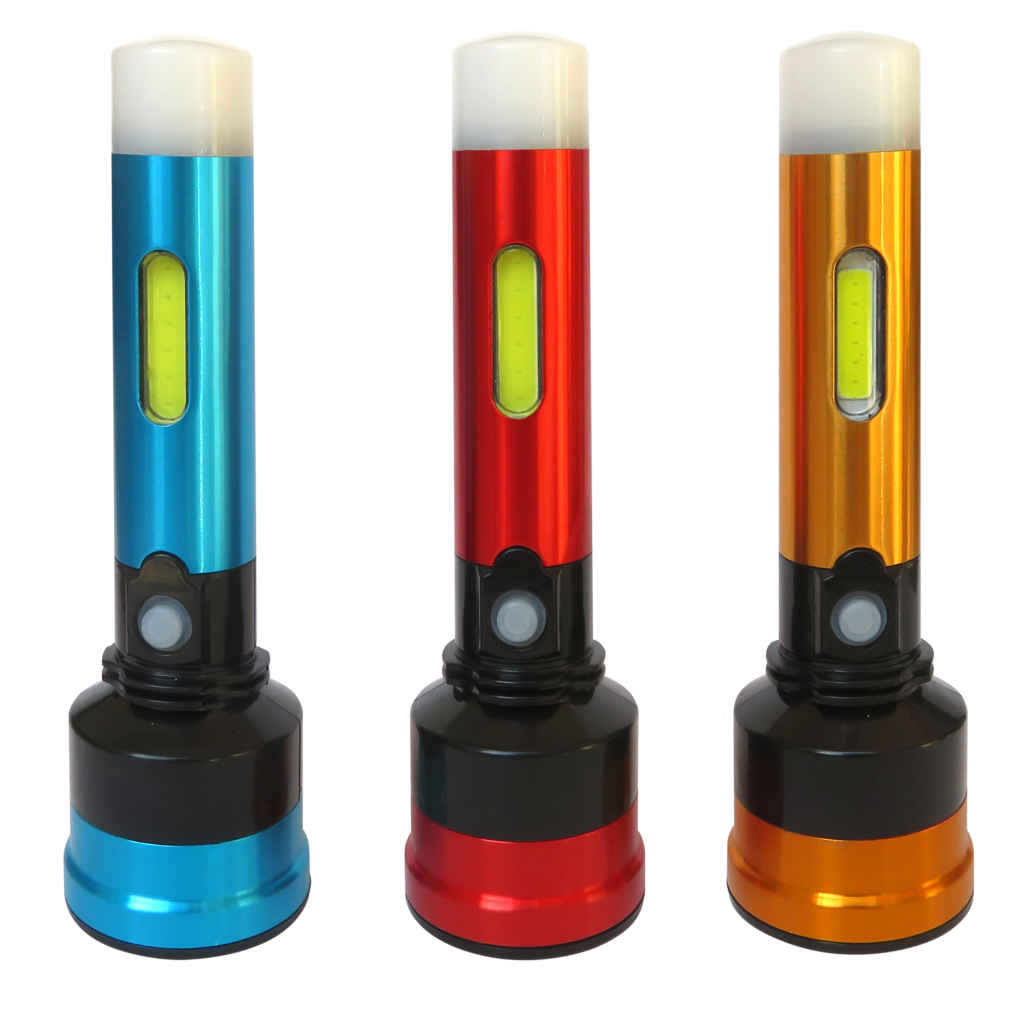

Understanding Flashlight Brightness: Lumens Explained
Lumens measure the total amount of visible light emitted by your flashlight. However, understanding brightness isn’t just about numbers – it’s about how that light works in real-world situations.
How Lumens Work in Practice:
- 100 lumens: Bright enough to read a book from 3 feet away
- 300 lumens: Illuminates an entire room during a power outage
- 800 lumens: Lights up a campsite and surrounding area
- 2000+ lumens: Illuminates objects several hundred feet away
- [Discover more about our advanced LED technology]
The Science Behind Brightness
Modern LED flashlights use advanced semiconductor technology to produce bright, efficient light. Our latest models feature:
- Premium LED chips
- Advanced reflector designs
- Optimized heat dissipation
- Multiple brightness modes

Choosing the Right Brightness Level for Your Needs
Everyday Carry (EDC) Use: 100-300 Lumens
Perfect for daily tasks with optimal battery efficiency.
Common Applications:
- Finding dropped items in dark spaces
- Night walking in urban areas
- Basic home inspection
- Car maintenance
- Power outages
Key Features to Look For:
- Compact size
- Multiple modes
- Easy one-handed operation
- Reliable pocket clip
Outdoor Activities: 500-1000 Lumens
Balanced brightness for serious outdoor adventures.
Ideal For:
- Camping and hiking
- Trail navigation
- Wildlife spotting
- Night fishing
- Mountain biking
Must-Have Features:
- Water resistance (IPX7 or higher)
- Impact resistance
- Multiple brightness modes
- SOS function
- Extended battery life

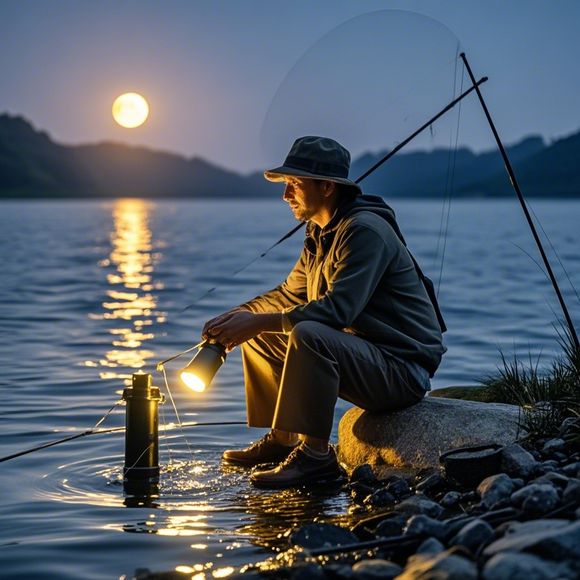
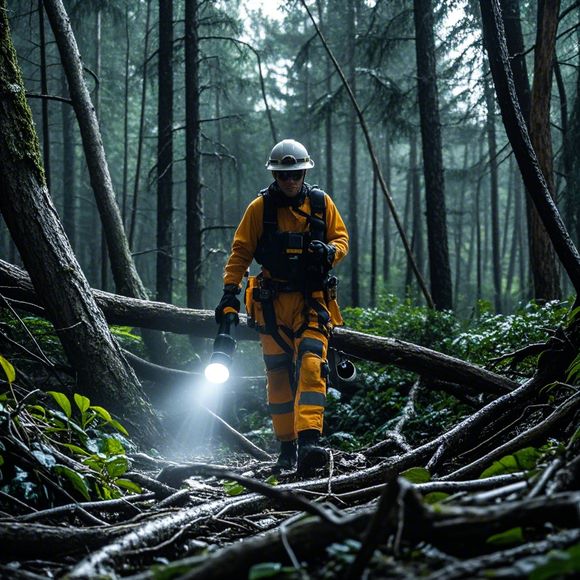
Caption: OBO Outdoor Series in Real-World Use
- Night Trail Navigation
- Fishing Illumination
- Firefighter on duty
Professional/Emergency Use: 2000+ Lumens
Maximum output for critical situations.
Applications:
- Law enforcement
- Search and rescue
- Industrial inspection
- Security patrols
- Emergency response
Advanced Features:
- Tactical strobe
- Momentary-on switch
- Aircraft-grade aluminum construction
- Military-grade anodizing
- Professional charging systems
How Lumens Affect Your Flashlight’s Performance
Battery Life Trade-offs
Understanding the relationship between brightness and runtime:
Runtime Chart:
- 300 lumens: 4-6 hours (ideal for EDC)
- 800 lumens: 2-4 hours (perfect for outdoor activities)
- 1500 lumens: 1.5-3 hours (professional use)
- 2000+ lumens: 1-2 hours (emergency situations)



Advanced Beam Characteristics
Beam Distance vs. Lumens:
- 300 lumens: ~150 meters beam distance
- 800 lumens: ~200 meters beam distance
- 1500 lumens: ~300 meters beam distance
- 2000+ lumens: 400+ meters beam distance
Beam Types:
- Flood Beam: Wide angle, ideal for close work
- Spot Beam: Focused, perfect for distance
- Adjustable: Variable focus for versatility
[Understanding Beam Patterns – Illuminating Engineering Society]
Common Myths About Flashlight Brightness
Myth 1: More Lumens Always Mean Better Performance
Truth: Higher lumens can mean:
- Shorter battery life
- More heat generation
- Increased size and weight
- Higher cost
Myth 2: Brightness Doubles with Twice the Lumens
Truth: Perceived brightness follows a logarithmic scale:
- Doubling lumens increases perceived brightness by ~25%
- Need 4x lumens for double perceived brightness
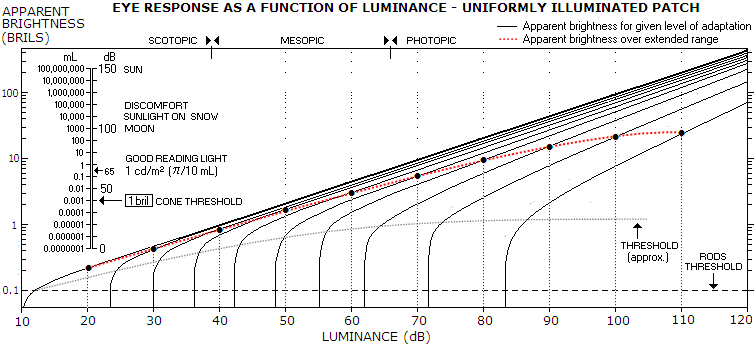
Making the Right Choice: A Buyer’s Guide
Consider these essential factors:
- Environment:
- Indoor: Lower lumens, flood beam
- Outdoor: Higher lumens, adjustable beam
- Professional: Maximum output, specialized features
- Runtime Requirements:
- Occasional use: Standard battery
- Regular use: Rechargeable
- Professional: Quick-change battery system
- Size and Portability:
- EDC: Pocket-sized
- Outdoor: Mid-size
- Professional: Full-size
Frequently Asked Questions
Q: How do I know if my flashlight’s brightness is enough? A: Test it in similar conditions to intended use. For EDC, try it in dark rooms and outdoors at night.
Q: Why does my flashlight seem dimmer over time? A: LED efficiency can decrease with heat and age. Quality models like OBO’s include thermal management and constant current regulation.
Q: Can high-lumen flashlights be dangerous? A: Very bright lights can cause temporary vision impairment. Always follow proper safety guidelines and avoid direct eye exposure.
[External Link: Eye Safety Guidelines – Vision Research Institute]


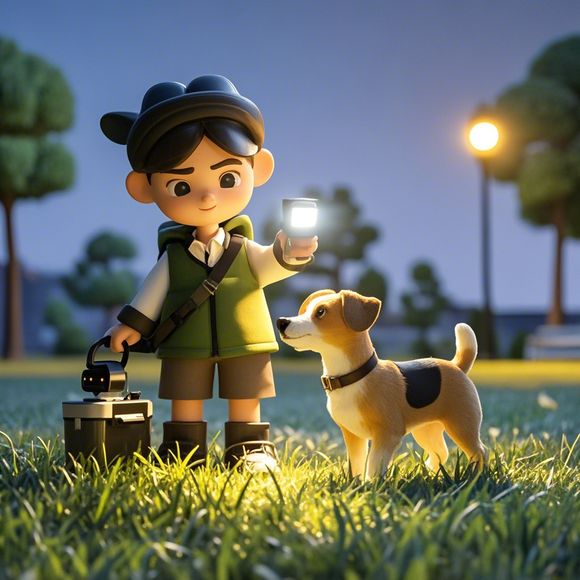
Conclusion
Choosing the right flashlight brightness involves balancing lumens, battery life, and specific needs. Our comprehensive range of flashlights offers solutions for every application, from everyday carry to professional use.
Take Action Today
🔦 Find Your Perfect Flashlight:
- Browse our complete collection
- Contact our experts for personalized recommendations
- Request a free sample for hands-on testing
Additional External Link Suggestions:

